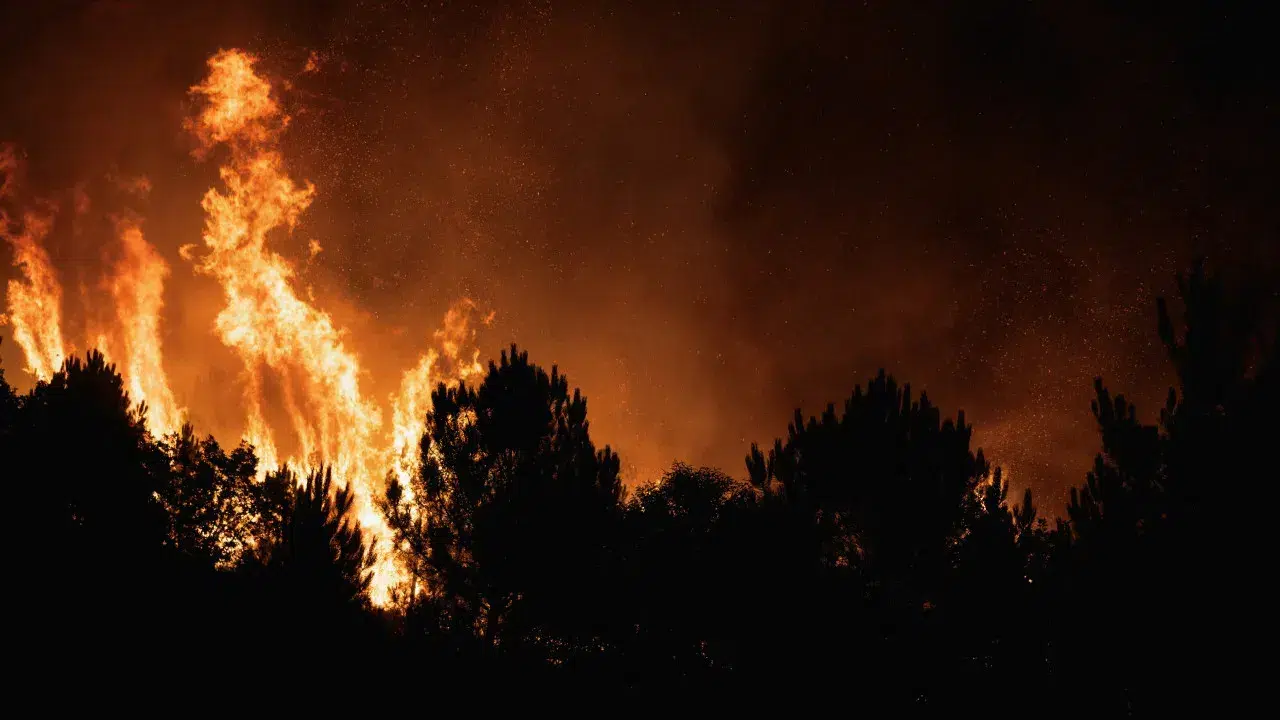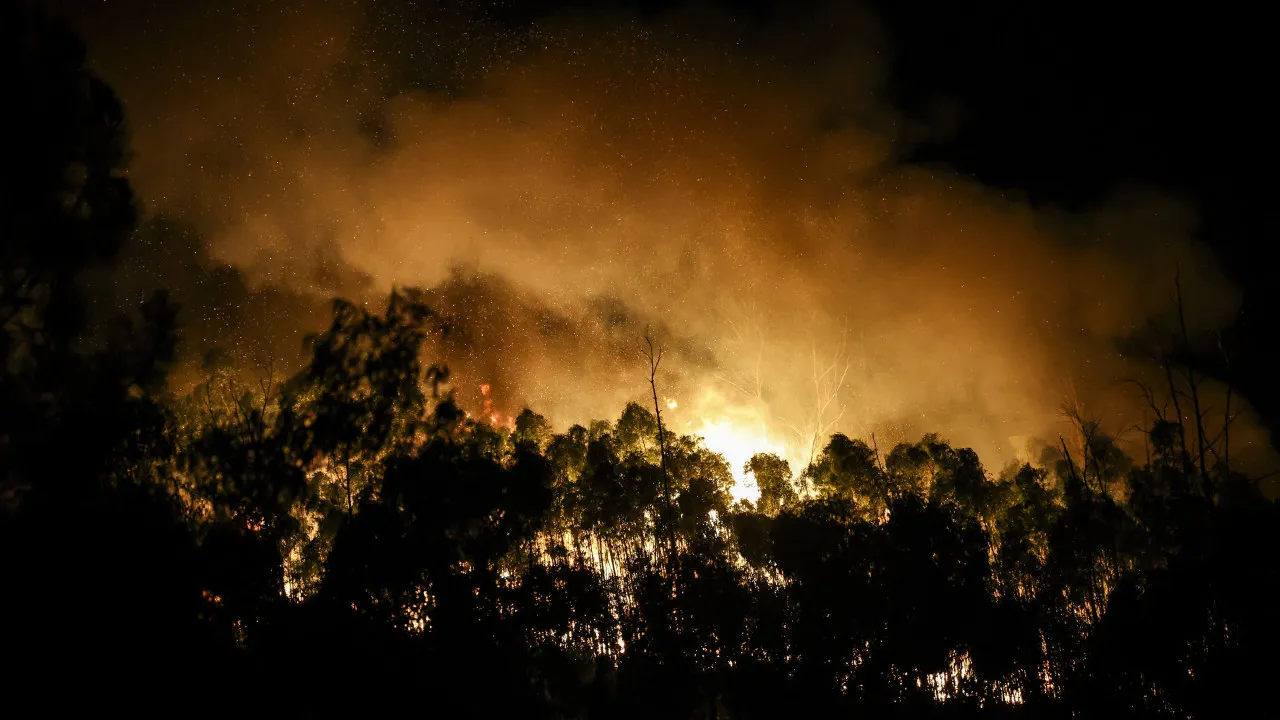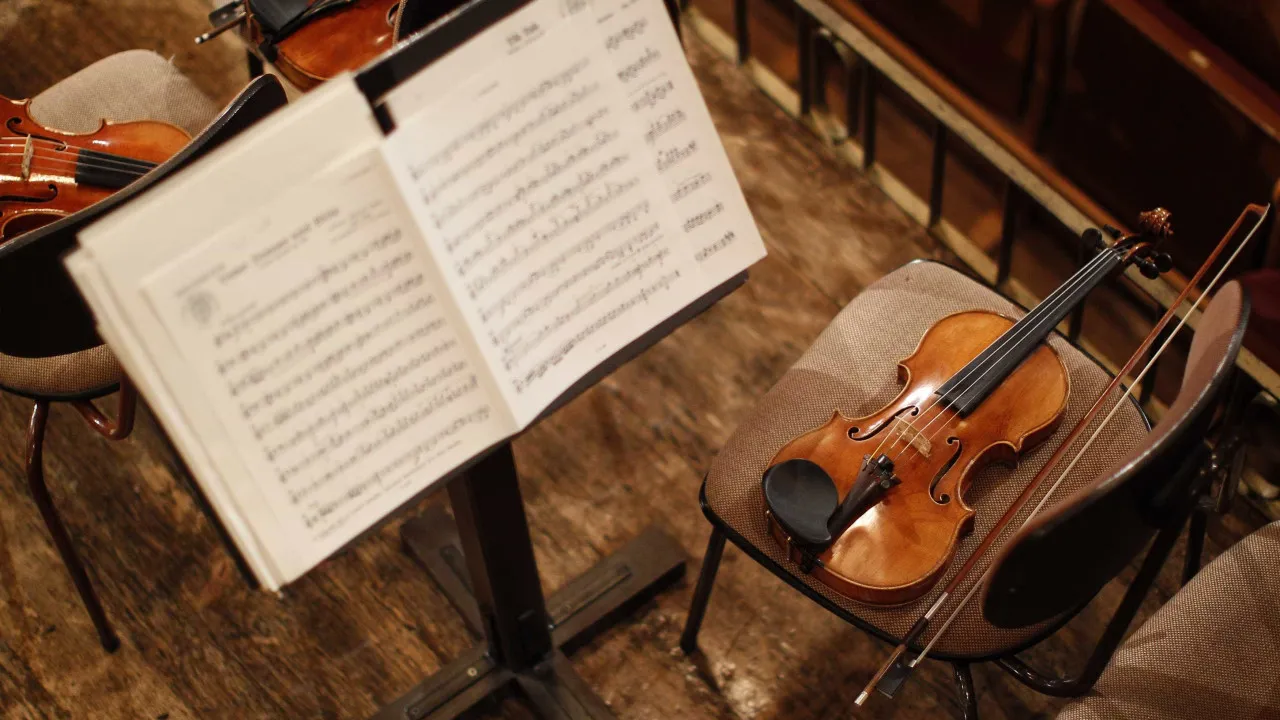
“In my life, I’ve never seen anything like this. I never thought the fire could be so big, so strong,” says Subash, a Nepalese resident who lost his home to a fire about two weeks ago in Zambujeira do Mar, Odemira.
This municipality has been countering depopulation thanks to the influx of immigrants like Subash, who work in agriculture.
In 2013, the National Institute of Statistics reported only 669 foreign residents in Odemira, a figure that has grown to 3,197 by 2023, representing a 377% increase, excluding pending applications.
Authorities estimated in April that there would be 1.6 million foreigners in 2024, according to the Agency for Integration, Migrations and Asylum (AIMA). However, the final report is pending, leaving the most recent municipality-specific data at 2023 numbers.
Some 400 kilometers north, in Oliveira do Hospital — where the foreign population increased from just 50 in 2013 to 283 ten years later, a 466% rise — Bangladeshi national Jewel knows the fires well. He is a forest ranger, opening the way for firefighters.
“It’s madness. We never stop; we can’t stop. We must protect people,” says Jewel, who works for a private forestry management company.
“These days, we cut down trees and brush to protect homes,” explains the ranger, who was hired in Bangladesh a year ago for this job in Portugal.
Sana Gupta and his wife live in a village in the interior of Guarda, where foreign residents increased from 56 in 2013 to 572 in 2023, a 920% surge. They’ve never experienced anything like what happened days ago.
“It was terrifying. Only elderly people live here, poor things. We opened our house to neighbors, and two ladies spent some hours with us, waiting for it to pass,” recalls Sana, who has lived in Portugal for two years, a country he finds “special, particularly the beautiful villages.”
Sana remembers the darkness brought by the fire: “It was daytime and felt like night. Then came a loud sound. But the firefighters were incredible.”
Praise for the firefighters is common, heard often by Brazilian Márcio Christo, deputy in the volunteer fire department of Pataias (Alcobaça), where foreigners rose from 90 in 2013 to 1,537 in 2023, a 1600% increase. This time, however, he was not heading north.
Aged 51 and living in Portugal since 2002, Márcio became a firefighter in 2011—a natural progression for someone active in community associations in Brazil.
It was in Portugal that he learned the force of fire: “It’s something inexplicable, a living being, incomprehensible sometimes, to be respected because it does what it wants.”
He was among the first responders at the 2017 Leiria Pine Forest fire near Falca Beach. “We couldn’t contain it,” he laments.
Now, as part of the command team, he’s more removed from direct operations but respects the courage of those who fight. “Those inside know. It’s strange; you’re surrounded, with a 25-diameter hose and three thousand liters of water against a world of flames.”
Firefighting is a collective effort, including contributions such as logistics.
Indian restaurateur Ganga Singh, based in Oliveira do Hospital, has dedicated his 25 staff members to delivering meals to the firefighters.
“It’s our duty. I don’t do this to please; it’s because we all must help each other,” says the businessman, who moved to Portugal nine years ago and to Oliveira do Hospital two and a half years ago.
“I had a restaurant in Coimbra but after visiting Serra da Estrela, I fell in love and came here because there were no ‘kebabs’,” explains Ganga, praising his new townsfolk.
“People are very friendly and welcoming. I felt at home quickly.”
In a statement, José Francisco Rolo, mayor of Oliveira do Hospital, highlights the town’s “long tradition of welcoming other communities” and notes that “today, to find labor, one must look to foreigners.”
“Among forest rangers, most are foreign, many from the Indian subcontinent or Africa, and they work well. There are no Portuguese for agriculture, forestry, or service sectors,” he summarizes.
“Oliveira do Hospital has a long history with immigrants from Belgium, the Netherlands, and Germany. Today, others arrive, but all communities unite against the common enemy: fire,” he stresses. “There are no nationalities, only commitment and work.”
“There’s no difference; I see them defend their belongings and forest. They also panic like the Portuguese and seek safe shelters, following authorities’ instructions,” adds José Francisco Rolo.
“When living in a village like Aldeia das Dez or Avô [areas hit by the fires], the entire community mobilizes to protect their belongings and the people’s resistance and efforts have been heroic,” says the mayor, criticizing anti-immigrant rhetoric, especially in more depopulated areas.
However, integration requires more than employment; the host country must provide living conditions, something still lacking for Jewel and Subash in Portugal.
“Without my children, I’m incomplete,” reveals the Bangladeshi ranger. Further south, the Nepalese farmer agrees.
Subash, who has been in Portugal for four years, doesn’t know when his family can join him from Nepal. “I dream of that day; I want to live here, and a fire won’t stop me from being here.”




